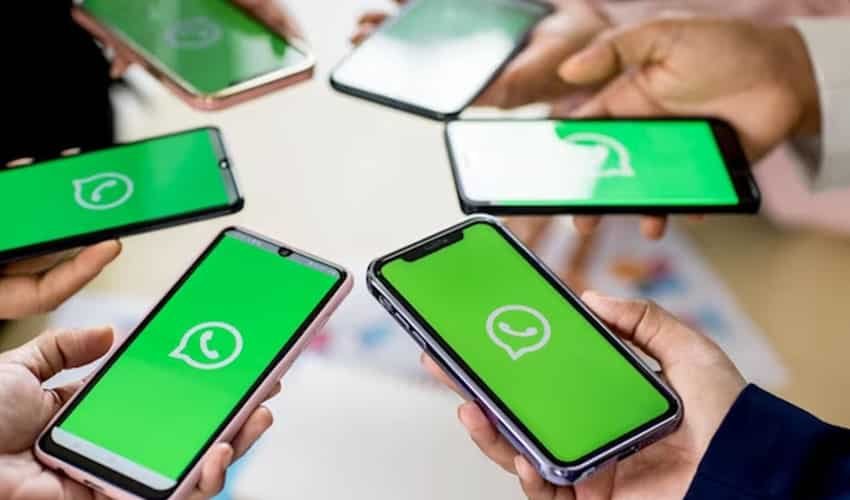WhatsApp has transformed the way people communicate globally, allowing seamless interaction between friends, family, and colleagues. Its popularity has inspired many entrepreneurs and businesses to explore the development of similar messaging platforms, often referred to as WhatsApp clone apps.
A WhatsApp clone app provides a familiar, intuitive user experience while also offering the flexibility to customize features, branding, and monetization options. In this comprehensive guide, we cover everything you need to know about developing a WhatsApp clone app — from planning and core features to design, security, launch, and ongoing maintenance.
Understanding the Basics of a WhatsApp Clone App
A WhatsApp clone app is essentially a messaging application that mirrors the essential features and functionalities of WhatsApp. While it seeks to replicate the core experience, it is developed independently and is not affiliated with or endorsed by WhatsApp’s parent company, Meta.
These clone apps are typically developed by third-party companies or independent developers. They aim to provide users with a similar chat, group, and media-sharing experience but can also include additional unique features to differentiate themselves in the market.
It’s important for businesses and users to recognize that while clone apps can offer similar functionality, they may not always have the same security and privacy protocols as WhatsApp. Evaluating the app’s reputation, data protection policies, and functionality is critical before development or usage.
Why Develop a WhatsApp Clone App?
The growth of WhatsApp has opened a vast market for messaging applications, creating opportunities for developers to introduce alternative platforms. A WhatsApp clone app can capture a share of this market while offering customizations that the original app does not provide.
Some key reasons to develop a WhatsApp clone app include:
1. Customization
You can design the app to reflect your brand identity, including custom interfaces, color schemes, and additional features that enhance user experience.
2. Full Control
Unlike using an existing app, developing a clone app allows you to control its functionality, features, and user experience. You can make adjustments based on user feedback and evolving market trends.
3. Monetization Opportunities
A WhatsApp clone app can include monetization strategies such as:
- In-app advertisements
- Subscription plans for premium features
- Pay-per-use services like file storage or video calls
4. Market Differentiation
You can differentiate your app by adding features like:
- Custom themes and stickers
- AI-based chat suggestions
- Enhanced security protocols
- Integration with business tools
By leveraging these advantages, businesses can create a platform that meets unique user needs while offering competitive alternatives to WhatsApp.
Key Features of a WhatsApp Clone App
The success of a WhatsApp clone app depends on including the right features that ensure seamless communication, convenience, and engagement. Some essential features include:
1. Secure Registration
Users should be able to register and log in safely using their phone numbers, email, or social media accounts. Security measures such as two-factor authentication enhance trust.
2. Messaging Functionality
One-to-one and group messaging features are fundamental. Real-time delivery, read receipts, and typing indicators enhance the chat experience.
3. Media Sharing
Users expect to share images, videos, audio files, and documents. Including cloud storage options or compression features can improve performance.
4. Voice and Video Calling
High-quality voice and video calls are core to user experience. Integration with WebRTC or other real-time communication frameworks ensures smooth calling.
5. Push Notifications
Real-time push notifications alert users of new messages, status updates, and important events, keeping them engaged.
6. Additional Features for Competitive Edge
To differentiate your app, consider adding:
- Status updates and stories
- File-sharing history
- In-app payments
- Multi-language support
- Chatbots or AI-based assistants
Comprehensive Guide to Design and Deployment
Developing a WhatsApp clone app involves multiple stages — planning, development, testing, deployment, and maintenance. Let’s break down each stage.
1. Planning Your WhatsApp Clone Development
Planning sets the foundation for successful app development. Key steps include:
- Market Research: Analyze competitor apps and identify gaps in user needs.
- Define Target Audience: Understand user demographics, interests, and messaging behavior.
- Choose Technology Stack: Select technologies that provide scalability, security, and cost efficiency. Popular choices include React Native, Flutter for cross-platform apps, and Node.js or Firebase for backend solutions.
2. Developing Core Features
Once the planning phase is complete, focus on building the core functionalities:
- Authentication & Registration: Secure registration using OTPs or social logins.
- Messaging System: Implement real-time messaging with read receipts and typing indicators.
- Media Sharing: Support multimedia content sharing with optimized storage.
- Voice & Video Calls: Integrate seamless calling using WebRTC or similar technologies.
- Push Notifications: Notify users about messages, updates, and app events in real-time.
3. Designing the User Interface
A clean, intuitive UI enhances user experience. Consider:
- Simplicity: Keep the app easy to navigate.
- Consistency: Uniform design elements across all screens.
- Accessibility: Ensure the app is usable for people with disabilities.
- Custom Branding: Integrate colors, logos, and layouts consistent with your brand identity.
4. Implementing Security Measures
Security is crucial for any messaging app. Steps to ensure robust security include:
- End-to-End Encryption: Protect user messages and media from unauthorized access.
- Data Privacy Policies: Maintain strict data privacy standards and compliance with regulations like GDPR.
- Secure Login: Use methods such as two-factor authentication to safeguard accounts.
- Regular Security Audits: Continuously monitor and update security protocols.
5. Testing Your WhatsApp Clone App
Testing ensures the app performs reliably and securely. Types of testing include:
- Functional Testing: Verify each feature works as intended.
- Usability Testing: Gather feedback to enhance user experience.
- Performance Testing: Ensure smooth operation under various loads.
- Security Testing: Identify vulnerabilities and fix them proactively.
6. Launching and Marketing Your WhatsApp Clone App
After thorough testing, plan a strategic launch:
- Pre-Launch Promotions: Use teasers, social media, and influencer campaigns to build hype.
- App Store Deployment: Publish on Google Play Store and Apple App Store.
- Marketing Strategies: Utilize social media campaigns, SEO, content marketing, and partnerships to attract users.
7. Maintaining and Updating Your App
Regular maintenance and updates are critical for user retention:
- Monitor Performance: Track app performance and fix bugs promptly.
- User Feedback: Continuously collect feedback and reviews to improve features.
- Feature Updates: Roll out new functionalities and improvements to stay competitive.
Benefits of Developing a WhatsApp Clone App
Developing a WhatsApp clone app offers several advantages for entrepreneurs and businesses:
- Fast Time-to-Market: Leveraging clone scripts accelerates development.
- Customizability: Tailor features to your brand and user preferences.
- Revenue Generation: Multiple monetization strategies like subscriptions and in-app purchases.
- Global Reach: Messaging apps have universal appeal, offering potential for rapid user adoption.
Conclusion
Creating a WhatsApp clone app allows you to tap into the lucrative messaging app market while providing an experience tailored to your target audience. By carefully planning your development process, implementing essential features, ensuring robust security, and focusing on a seamless user experience, you can launch a competitive and scalable app.
With attention to design, functionality, and ongoing updates, a WhatsApp clone app can become a reliable communication platform, helping you establish your presence in the rapidly growing mobile messaging ecosystem.




Leave a Reply